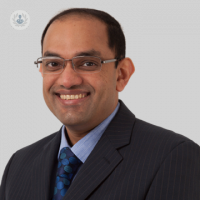Understanding breast cancer: Awareness, prevention, and treatment
Written in association with:Breast cancer is one of the most common types of cancer affecting women worldwide. While it can also occur in men, it is significantly rarer in males. This disease originates in the cells of the breast, typically in the ducts or lobules. Over time, it can spread to other parts of the body if not detected and treated early.

Causes and risk factors
Several factors contribute to the development of breast cancer, though the exact cause is not always known. Some key risk factors include age, family history, genetic mutations (such as BRCA1 and BRCA2), hormonal influences, and lifestyle factors like diet, alcohol consumption, and lack of physical activity. Women over 50 and those with a close relative who has had breast cancer are at a higher risk.
Symptoms and detection
Early detection of breast cancer greatly increases the chances of successful treatment. Common symptoms include a lump or thickening in the breast or underarm, changes in breast shape or size, skin dimpling, nipple discharge, and persistent pain.
However, in the early stages, breast cancer might not cause any noticeable symptoms. This is why regular screening is crucial. Mammograms, clinical breast exams, and self-examinations are essential tools in detecting breast cancer early.
Prevention and treatment
While some risk factors like genetics cannot be changed, there are several ways to reduce the risk of developing breast cancer. Maintaining a healthy lifestyle, including regular exercise, a balanced diet, and limiting alcohol intake, can lower the risk. For those at high risk, preventive measures such as medications or prophylactic surgery may be considered.
Treatment for breast cancer varies depending on the stage and type of cancer. Common treatments include surgery, radiation therapy, chemotherapy, hormone therapy, and targeted therapy. Advances in research have also led to more personalized treatment options, improving outcomes for many patients.


